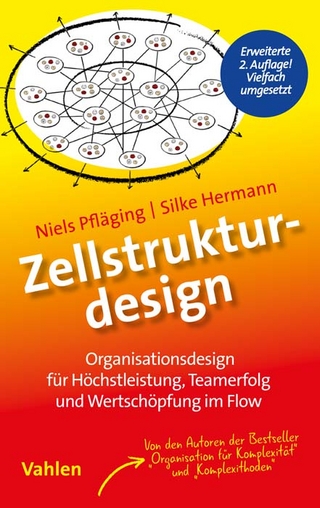
Leveraging Technology as a Response to the COVID Pandemic
CRC Press (Verlag)
978-0-367-76930-7 (ISBN)
In 2019 the world was struck with the Coronavirus (COVID-19) infecting major portions of the world’s population. There were no vaccines or treatments available to help mitigate the disease or offer a cure. The world's health systems were inundated with massive numbers of patients with varying ranges of symptoms, acuity, and levels of criticality. The world's healthcare organizations soon found themselves in an unmanageable situation, directly impacting the ability to manage patients across the entire healthcare environment. Most healthcare institutions had plans for emergency preparedness and procedures to deal with temporary crises, none of which were effective against the impact of COVID-19. COVID-19 was a highly contagious disease, resulting in high volumes of admissions with long lengths of stay. The virus quickly overwhelmed institutions with large patient volumes, resulting in shortages of patient beds, medical equipment, personal protective devices, cleaning agents, and other critical supplies. Hospital operations were further impacted by staff shortages due to exposure, resulting contagion, the shutdown of transit systems, and responsibilities at home due to school and business closures.
This timely and important book describes the impact on the hospital ability to provide patient care and how healthcare institutions leveraged diverse technology solutions to combat the impact of COVID-19 on providing patient care. The authors also discuss implementation of these technology solutions and the many lessons learned of how healthcare institutions can enhance their emergency preparedness in the future from the COVID experience.
The authors would like to acknowledge, thank, and dedicate this book to the hundreds of thousands of healthcare workers around the world who spent countless hours and put their own lives and families lives at risk to help patients though this pandemic.
Paul Frisch is currently an Associate Attending in the Department of Medical Physics and the Chief of Biomedical Engineering at Memorial Sloan-Kettering Cancer Center. He currently serves on technical committees and advisory boards including IEEE Counsel on RFID, ECRI Institute and serves as the Chief Technical Officer for the RFID in Healthcare Consortium and President of the Intelligent Health Association. Paul’s responsibility focuses on the investigation of new and evolving technologies and developing their potential integration into clinical applications and operations to enhance patient outcomes, care, and safety. Current areas of investigation focus on clinical 3D imaging and printing, robotics, and medical device development. Previous experiences include research in electromagnetic field induced gene expression in targeted gene therapy, human biodynamics resulting from transitory acceleration, such as crash-impact and aircraft ejection and robotic applications in pharmaceutical development. Paul Frisch has a Doctoral degree in Biomedical Engineering from the State University of New York at Binghamton and Master’s and Bachelor’s degrees in Electrical Engineering from the State University of New York at Stony Brook. Ashley Jackson is the Manager of the Health Technology Management group at Memorial Sloan Kettering Cancer Center. She manages a team of over 23 engineers, with varied specialties (Clinical Engineering, Radiological Engineering, Service Coordination, Project Management), responsible for the maintenance and support of more than 27,000 medical devices in a multi-facility institution. Ashley focuses on operationalizing technology-driven hospital initiatives ranging from small implementations of new technologies to large, hospital-wide medical equipment rollouts. She strives to find new and innovative ways to utilize technology to enhance patient care. Ashley is an active member of numerous hospital committees, including the Clinical Device Product Evaluation Committee (CDPEC), Executive Safety Council, and the Alarm Management Committee. As part of the Alarm Management Committee, she has presented at events including but not limited to the Voalte VUE Conference, the Comprehensive Cancer Consortium for Quality Improvement (C4QI), and the 2019 MSKCC Joint Commission Opening Ceremony. Ashley’s holds a master’s degree in Electrical Engineering with a concentration in Wireless Communication and a bachelor’s degree in the same subject. Outside of her work at Memorial Sloan Kettering, Ashley loves to play music. In her free-time, she is typically found with a microphone in hand in front of a guitar or piano. Paul Booth is the Founder of Applied Surgical Robotics, LLC in New York, NY. He is also on the advisory board of the New Jersey Institute of Technology. Prior to that he was a section head of Clinical engineering Operations at Josie Roberson Surgery Center, Memorial Sloan Kettering Cancer Center. He serves on various committees such as the Laser Safety Committee, MRI Safety Committee, Clinical Device and Product Evaluation Committee. He has contributed to numerous peer-reviewed publications including the IEEE Engineering in Medicine and Biology Society. He also has served as a clinical reviewer for ECRI Health Devices. He also has numerous patent applications pending. Samuel Hellman, Ph.D., Manager of Mechanical Engineering: Dr. Hellman is a mechanical engineer with a background in experimental fluid dynamics, thermodynamics, instrumentation, mechanical design, scientific imaging and optics. In addition to his position at MSKCC, he holds an appointment as Adjunct Assistant Professor of Mechanical Engineering at the University of North Carolina - Charlotte (UNCC). He has experience designing a broad range of mechanical systems and instrumentation for use in research and production environments. These projects span medical, aerospace, manufacturing and energy production sectors with academic, government and industrial collaborations. His personal research has been related to experimental laser-measurement systems for flow-structure interactions.
Chapter 1: COVID-19 -What we learned from a global health crisis Chapter 2: COVID-19 Healthcare System Impact & Hospital Response Chapter 3: Hospital at Home: Transformation of an Old Model with Digital Technology Chapter 4: Biomedical Engineering’s Response to Drive COVID-19 Patient Care Solutions: Lessons Learned from the Front Lines Chapter 5: Data Management & Analytics to Drive Covid Response Chapter 6: The Role of Real-Time Location Systems in Ambulatory Care in the Post-Pandemic Era Chapter 7: Medical Devices: Responding to a Crisis with 3D Printing, Design, Engineering and Production Chapter 8: Combating Covid-19 With Germicial Ultraviolet "C" Light Chapter 9: Optimizing Infection Control & Hand Hygiene During Covid Chapter 10: How COVID-19 Catalyzed Community-Driven AI in the Metaverse of Medical Data Chapter 11: Remote Respiratory Care For Rural Asia – Impetus For The World Chapter 12: High-throughput Antibody Discovery Comes of Age in Response to COVID-19
| Erscheinungsdatum | 12.12.2022 |
|---|---|
| Reihe/Serie | Intelligent Health Series |
| Zusatzinfo | 69 Line drawings, black and white; 69 Illustrations, black and white |
| Verlagsort | London |
| Sprache | englisch |
| Maße | 178 x 254 mm |
| Gewicht | 940 g |
| Themenwelt | Medizin / Pharmazie ► Gesundheitswesen |
| Technik | |
| Wirtschaft ► Betriebswirtschaft / Management ► Planung / Organisation | |
| Wirtschaft ► Betriebswirtschaft / Management ► Unternehmensführung / Management | |
| Wirtschaft ► Volkswirtschaftslehre | |
| ISBN-10 | 0-367-76930-1 / 0367769301 |
| ISBN-13 | 978-0-367-76930-7 / 9780367769307 |
| Zustand | Neuware |
| Informationen gemäß Produktsicherheitsverordnung (GPSR) | |
| Haben Sie eine Frage zum Produkt? |
aus dem Bereich


